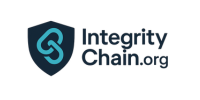Procurement Fraud in Startups: When Vendors and Kickbacks Derail Growth

In the high-speed world of startups, procurement can feel like an afterthought. Founders are focused on building product, hiring talent, and scaling fast. But as startups grow and money starts flowing toward vendors, agencies, and outsourced services, procurement fraud can creep in—quietly siphoning cash, eroding margins, and damaging trust.
For top management, understanding how procurement fraud works—and how whistleblowers often uncover it—can be the difference between operational excellence and a costly internal scandal.
What Is Procurement Fraud?
Procurement fraud is any dishonest conduct in the purchasing process where an employee, vendor, or third party benefits at the company’s expense. In startups, it can manifest in several ways:
- Fake or shell vendors issuing invoices for services never rendered
- Inflated pricing for equipment, tools, or services
- Kickbacks to employees in exchange for approving vendor contracts
- Conflict of interest where an employee routes business to a vendor they secretly own or are related to
- Split invoicing to bypass approval thresholds
What makes procurement fraud so dangerous in startups is how easily it can blend into growth spending—especially when departments are scaling quickly and founders are too busy to monitor every contract.
Why Startups Are Susceptible
Startups don’t usually start with a full procurement department. Founders may give department heads or office managers freedom to choose vendors—often without clear approval processes or third-party vetting. In early stages, that flexibility is necessary. But as teams grow, that informality can backfire.
Common risk factors include:
- Rapid hiring of junior or contract employees without proper onboarding
- Lack of centralized vendor lists or procurement software
- No defined approval limits for purchases or service contracts
- Founders who assume loyalty equals integrity and don't verify payments
In some cases, fraud happens at the top: a co-founder or CXO may funnel business to friends, relatives, or shell companies while covering it as “strategic outsourcing.”
Real Startup Scenarios
In recent years, several startups fell victim to procurement fraud:
- A fintech startup in Berlin uncovered that a mid-level operations manager created two shell vendor companies that issued monthly invoices for services never provided. Over 18 months, nearly €400,000 was paid out before a new CFO flagged discrepancies.
- A Series B healthtech firm in Austin discovered that a co-founder’s sibling owned the startup’s main logistics vendor—charging 2x market rates for delivery services. The co-founder hadn’t disclosed the relationship.
- At a SaaS startup in India, HR was found splitting payments between two separate freelance platforms to avoid triggering contract review by legal and finance. This concealed unauthorized consultant hiring and inflated cost structures.
In most cases, it wasn’t audits that caught the problem—it was employees or junior accountants raising questions internally.
How Whistleblowers Help Uncover the Truth
Procurement fraud often goes unnoticed because it looks like legitimate spending. Whistleblowers—typically staff in finance, ops, or vendor management—are the first to notice patterns like:
- Duplicate vendor addresses or bank accounts
- Repeated payments for vague “consulting” services
- Services billed but not confirmed delivered
- Quotes from preferred vendors always winning bids
When these concerns are raised internally and dismissed, whistleblowers may take their reports to boards, investors, or even regulators—especially if fraud impacts cap table decisions, tax filings, or audit readiness.
Founders who foster a culture of transparency, and act quickly when these flags appear, can stop fraud early and reduce damage.
How Founders and Leaders Can Prevent Procurement Fraud
- Centralize vendor approval
Create a single process or tool (even a Google Form or Airtable to start) to log every vendor and who approved them. - Set spending thresholds
Require secondary review or CFO sign-off for contracts above a certain dollar value—especially for marketing, logistics, and IT. - Verify vendor legitimacy
Check tax IDs, addresses, and ownership where possible. Shell companies often share details with internal staff. - Rotate responsibilities
Avoid situations where one person controls vendor selection, payments, and performance verification. - Review vendor concentration
If 50% of your budget is going to one unknown agency, ask why. Request performance reviews and competitive quotes. - Audit high-spend categories quarterly
Whether it’s advertising, consulting, or SaaS tools—verify value for money and eliminate vendors with unclear output. - Create safe reporting channels
Let employees share concerns anonymously or through a neutral party. Ensure there’s no retaliation.
What to Do If Procurement Fraud Is Suspected
If you suspect fraud:
- Freeze all payments to the vendor in question until a review is complete
- Preserve all documents, emails, contracts, and payment trails
- Engage your board or legal counsel if internal leadership is involved
- Interview stakeholders discreetly, starting with finance and department heads
- Involve a forensic accountant if losses may be substantial
Act quickly but fairly. Sometimes, discrepancies are honest mistakes—other times, they reveal deep-rooted ethical lapses.
Final Thoughts
As a founder, your job isn’t to micromanage every invoice—but you are responsible for creating a culture and system that makes procurement fraud hard to commit, and easy to catch.
When cash is tight, every dollar matters. When you're growing fast, every process matters. Procurement fraud erodes both—and often under your nose. The good news? You don’t need an enterprise compliance system to prevent it. You just need clear policies, watchful leadership, and a culture where whistleblowers are respected, not punished.
Trust is built on how you spend, not just how you raise. Make sure your startup is building both wisely.



